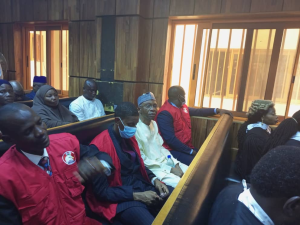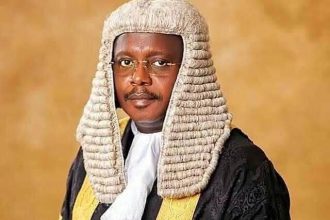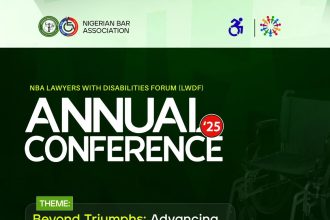The Ikeja Special Offences Court has dismissed former Central Bank Governor Godwin Emefiele’s application challenging its jurisdiction in a case involving allegations of abuse of office leading to losses of $4.5 billion and ₦2.8 billion.
Emefiele faces a 26-count charge filed by the Economic and Financial Crimes Commission (EFCC). His co-defendant, Henry Omoile, is accused of related offences, including the unlawful acceptance of gifts.
Court Orders Forfeiture of Properties Linked to Emefiele.
Justice Rahman Oshodi ruled that the court has jurisdiction to hear counts eight to 26, affirming that the prosecution had established a sufficient territorial nexus. “The prosecution has established sufficient territorial nexus in this case,” the judge stated.
However, the court struck out counts one to four, related to foreign exchange allocation, citing the absence of any written law criminalizing the alleged acts. “Allocation of foreign exchange without reason is not defined as an offence in any written law,” Justice Oshodi clarified.


The court adjourned the trial to February 24, 2025, for continuation.
The defence, led by Mr. Olalekan Ojo (SAN), argued on December 12, 2024, that the court lacked territorial jurisdiction over the alleged offences, which were said to have occurred outside Lagos. Ojo contended that Section 36(12) of the Nigerian Constitution precludes punishment for actions not defined as offences under written law.
Court to Rule on Jurisdiction and Final Forfeiture in Emefiele Case on November 1
Furthermore, Ojo questioned the applicability of Section 73 of the Criminal Law of Lagos State, 2011, in extra-territorial matters. He urged the court to dismiss counts one to four, asserting that they fell outside its jurisdiction.
In response, EFCC counsel Mr. Rotimi Oyedepo (SAN) maintained that the court had authority over the case, given the economic and financial nature of the alleged crimes. He argued that witness testimonies and evidence linked the offences to Lagos, establishing the court’s jurisdiction.
Justice Oshodi’s ruling represents a significant step in the trial, as the EFCC prepares to present its case on the remaining charges.









